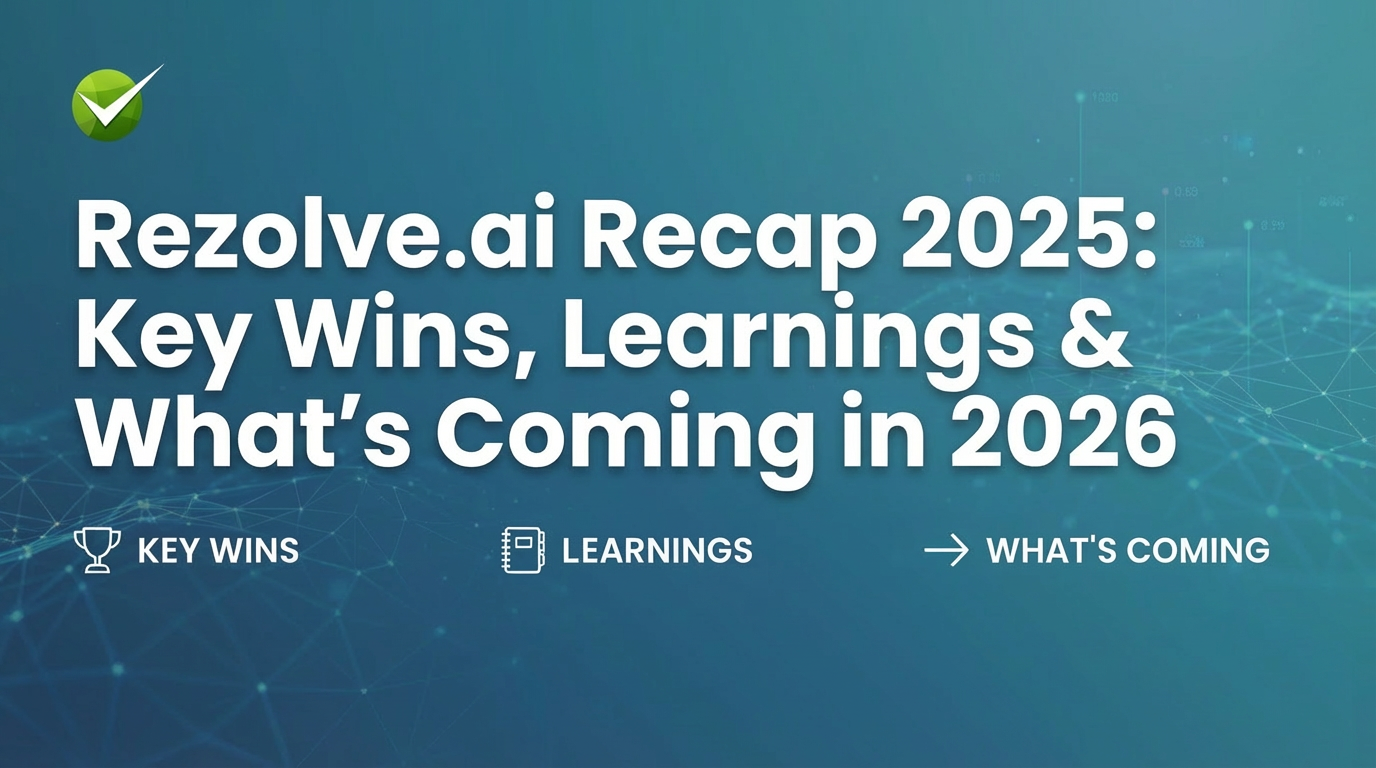Are you struggling to measure the success of your GenAI IT Service Management solutions effectively? Picture this: your business is invested in generative AI, but how do you know it's truly making a difference in your IT service management efforts? Tracking the right metrics and key performance indicators (KPIs) is the compass that guides you through the intricate landscape of GenAI's success.
This blog unravels the mystery behind essential metrics for measuring success in GenAI IT Service Management solutions. Dive into a realm where tracking user experience, system quality, and GenAI's business impact becomes second nature. Learn how data-driven insights, cost-saving strategies, and IT service quality metrics play a pivotal role in unveiling the true potential of generative AI in transforming your IT service management approach.
Get ready to explore the best practices and strategies for harnessing the power of GenAI through a lens focused on measurable success. Let's embark on a journey of discovery where transformative technology meets actionable metrics to drive your ITSM initiatives to new heights.
The importance of KPIs in AI implementation
When it comes to implementing artificial intelligence (AI) solutions, measuring success is crucial. Key performance indicators (KPIs) are vital in tracking the effectiveness and impact of AI initiatives, including generative AI in IT service management (ITSM) solutions. These KPIs provide valuable insights into AI technologies' performance, efficiency, and business impact.
To ensure the success of AI implementation, businesses must identify and track relevant KPIs. Here are some essential KPIs to consider for measuring the effectiveness of generative AI in ITSM:
1. Incident Response Time
The time taken to respond to incidents is a vital metric in ITSM. Monitoring and reducing response time can improve customer satisfaction and minimize downtime.
2. Incident Resolution Time
This metric measures the time it takes to resolve IT incidents. Faster incident resolution indicates efficient ITSM processes and improved user experience.
3. First-Call Resolution Rate
The percentage of incidents resolved during the first customer contact reflects the effectiveness of ITSM support. A higher first-call resolution rate indicates better customer service and reduced response times.
4. Number of Active Tickets
Tracking the number of active IT tickets helps identify the workload on IT teams and the efficiency of the ticket management process.
5. Service-Level Agreement (SLA) Adherence Ratio
Measuring SLA adherence provides insights into the ability to meet service-level commitments. A high SLA adherence ratio demonstrates effective ITSM processes.
These are just a few examples of the key metrics and KPIs businesses should track to measure the success of generative AI in ITSM solutions. Effective monitoring and analysis of these KPIs can help businesses optimize their ITSM processes and drive better business outcomes.
Generative AI: How Do We Measure Success?
Generative AI has revolutionized IT service management, but measuring its success requires a thoughtful approach. By leveraging key metrics and KPIs, businesses can gauge the effectiveness of generative AI in their ITSM efforts. In this section, we will explore how to measure generative AI success incrementally and exponentially and the importance of setting objectives and using KPIs for effective measurement.
When measuring generative AI success, it's essential to consider both incremental improvements and exponential innovation. Incremental improvements involve enhancing operational efficiency and achieving key results focused on objectives like faster, better, and cheaper outcomes. Generative AI can contribute to these results by optimizing processes, reducing errors, and improving overall efficiency.
On the other hand, exponential innovation refers to generative AI's transformative impact on an organization. Businesses can achieve breakthrough advancements and drive exponential growth by combining human critical thinking with generative AI technology. This can be seen in achieving objectives like developing new products, creating personalized experiences, and revolutionizing industry practices.
Overview of OKRs and KPIs for Generative AI
To measure success in generative AI, organizations can leverage objectives, key results (OKRs) and Key Performance Indicators (KPIs). OKRs provide a framework for setting ambitious yet achievable goals, while KPIs offer specific metrics to track progress and performance.
Businesses should consider quantitative and qualitative measures when setting OKRs and KPIs for generative AI. Quantitative success can be evaluated through cost savings, system downtime reduction, and improved incident response times. Qualitative success, on the other hand, can involve measuring user satisfaction, customer experience, and the overall impact on business goals.
Incremental improvements to operations using generative AI
Generative AI can offer incremental improvements to various IT service management aspects. Generative AI contributes to faster, better, and more cost-effective operations by automating repetitive tasks and streamlining processes. Key results in this context could include reduced incident response times, increased first-call resolution rates, and improved system uptime and downtime percentage.
Exponential innovation using generative AI
Generative AI's true potential lies in its ability to drive exponential innovation. Businesses can achieve breakthrough solutions and transformative outcomes by combining the power of human critical thinking with generative AI capabilities. Some best practices for leveraging generative AI for maximum impact include fostering collaboration between AI and human experts, continuously learning and adapting AI models, and leveraging generative AI to solve complex problems.
Quantitative and qualitative success
When evaluating the success of generative AI programs and pilots, it's essential to consider both quantitative and qualitative factors. Quantitative measurements include cost savings, system effectiveness, and business impact. Qualitative assessments focus on user satisfaction, system quality, and the overall value generated by generative AI solutions.
Measuring and analyzing the success of generative AI programs is an evolving process. By leveraging a well-defined set of OKRs and KPIs, organizations can gain valuable insights into the effectiveness of generative AI and drive continuous improvement in IT service management.
By implementing a comprehensive measurement strategy encompassing different dimensions of success, businesses can effectively evaluate the impact of generative AI in IT service management. Through continuous monitoring, analysis, and data-driven adjustments, organizations can drive meaningful change and unlock the full potential of generative AI.
Essential IT Service Management Metrics to Track
Effective tracking of IT service management metrics is crucial for understanding the success and impact of GenAI solutions. By monitoring key performance indicators (KPIs), businesses can evaluate their IT service management processes' efficiency, effectiveness, and customer satisfaction. Here are some essential ITSM metrics and KPIs to track:
1. Incident Response Time: Measure the time taken to respond to and acknowledge incidents, providing timely support to users.
2. Incident Resolution Time: Track the duration from incident reporting to successful resolution, ensuring prompt issue resolution.
3. First-Call Resolution Rate: Measure the percentage of issues resolved during the first interaction, reducing the need for escalations.
4. Number of Active Tickets: Monitor the volume of open tickets in the system, ensuring efficient ticket management and prioritization.
5. Service-Level Agreement (SLA) Adherence Ratio: Evaluate the adherence to SLAs to ensure service commitments are met consistently.
6. Change Success Rate: Track the success rate of implementing changes, minimizing disruptions and ensuring a smooth transition.
7. Request Fulfillment Time: Measure the time taken to fulfill user requests, providing efficient and
timely service delivery.
8. Customer Satisfaction: Gauge user satisfaction levels through surveys and feedback, ensuring a positive service experience.
9. System Uptime and Downtime Percentage: Monitor the availability of IT systems to minimize downtime and maximize productivity.
10. Mean Time to Repair (MTTR): Track the average time taken to resolve incidents, identify improvement areas and optimize support processes.
By consistently measuring these ITSM metrics, businesses can evaluate the effectiveness of their GenAI-powered IT service management solutions and make data-driven adjustments to improve performance and meet business goals. Leveraging tools like Rezolve.ai can further enhance ITSM functionality and provide actionable insights for better decision-making.
Generative AI has become a game-changer in IT service management, revolutionizing how businesses handle operations and drive innovation. But how can we accurately measure the success of generative AI initiatives? Organizations must rely on a combination of key metrics and Key Performance Indicators (KPIs) to evaluate the effectiveness and impact of generative AI. These metrics provide valuable insights into the performance, efficiency, and user satisfaction levels achieved by implementing generative AI techniques.




.webp)




.jpg)

.png)








.png)